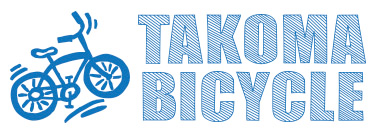 Back in the day, the running-along-side method was the go-to technique to teach your kid to ride a bike. It's probably how you learned. It still works. But one big thing to keep in mind–DO NOT tell your kid you're not going to let go and then let go. If they crash, you break their trust and their confidence. However, there’s a newer method on the block. This method teaches kids to master a few different skills at a time, so they aren't overwhelmed. It might help you from going crazy too. Of course, there's going to be a few bumps and bruises along the way, so have plenty of fun cartoon Band-Aids on hand. The boring beige ones just won't cut it.
Back in the day, the running-along-side method was the go-to technique to teach your kid to ride a bike. It's probably how you learned. It still works. But one big thing to keep in mind–DO NOT tell your kid you're not going to let go and then let go. If they crash, you break their trust and their confidence. However, there’s a newer method on the block. This method teaches kids to master a few different skills at a time, so they aren't overwhelmed. It might help you from going crazy too. Of course, there's going to be a few bumps and bruises along the way, so have plenty of fun cartoon Band-Aids on hand. The boring beige ones just won't cut it.
- Don't make the day you actually bring home the bike, or as we like to call it 'Bike Day,' the same day you take the training wheels off. Let your little one tool around the block for a few weeks on training wheels, or until he or she feels comfortable enough to take the plunge.
- OK, it's the big day. Remove the training wheels. Then, lower the saddle so it's low enough for your child to place their feet flat on the ground when sitting on their bike.
- Grassy field, here we come. Find a soft slope of about 30 yards. Ideally, the slope turns into a slight uphill or flattens out to slow things down. We're also looking for grass that's long enough to cushion a fall but short enough to keep things moving. (Yes, there are a lot of 'ideals' here, but just do your best to find a good spot.)
- Safety first. Always, always, always strap on a helmet. And make sure all shoelaces are tucked in.
- We're going to tackle balance first–we'll deal with pedaling next. Start halfway up the hill and hold the bike while your child climbs on. Now, let go of the bike and have your child lift their feet so they coast down the hill. Again, we're working on balance, so no pedaling. Avoid holding onto the bike. Instead, tell them to put their foot down when they feel unbalanced.
- Keep working on coasting 'til they are comfortable–make it a fun game and count the seconds 'til they put their foot down. There's no need to rush to the next step. You might be here for a few days or weeks.
- OK, it's time to put the pedal to the metal. This time, have your child just place their feet on the pedals and coast. Try a few runs, just coasting, and then have them start to pedal.
- Once they feel comfortable, raise the saddle seat and head to a flat space to try starting from a stop. A cul-de-sac or a loop in a park is perfect for practicing turning.
A couple extra little notes: Don't go from two training-wheels to one as an in-between step. One training wheel just makes the bike unstable and the key to teaching a child to ride is balance. There's no right age to teach a child to ride. Consider instead their interest in learning, how coordinated they are and their size. Children who are ready can usually skip, hop on one foot, and walk along a brick garden wall, parking-lot block or curb. Size-wise, kids with inseams of at least 17' means they can balance comfortably on a two-wheeler.


